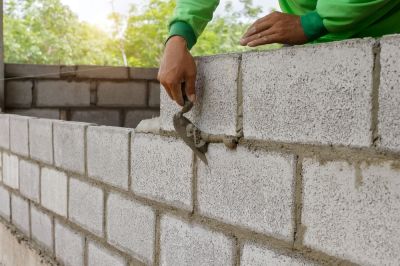Concrete Block Masonry: Versatility and Strength
Concrete block masonry is a cornerstone in the construction industry, celebrated for its versatility, strength, and durability. Whether you're building a residential home, a commercial office, or a public infrastructure project, concrete blocks offer numerous advantages that make them a preferred choice for builders and architects alike.
One of the standout benefits of concrete block masonry is its exceptional strength and durability. These blocks possess high compressive strength, making them ideal for load-bearing structures. Their resistance to weathering, fire, and pests further ensures the longevity of any building constructed with them. This robustness translates into structures that can withstand the test of time and environmental challenges, providing a secure and lasting investment.
The versatility of concrete blocks is another significant advantage. Available in a variety of sizes, shapes, and finishes, concrete blocks can accommodate a wide range of architectural designs. They are suitable for both structural and non-structural applications, including walls, foundations, partitions, and retaining walls. This flexibility allows builders to create intricate and diverse designs without compromising on structural integrity.

Concrete blocks also excel in providing thermal and acoustic insulation. Their density and mass help maintain consistent indoor temperatures, reducing energy costs. Additionally, they offer excellent sound insulation, minimizing noise transmission between rooms and from external sources. This makes them an excellent choice for buildings where temperature control and noise reduction are crucial, such as homes, schools, and office buildings.
Fire resistance is another critical benefit of concrete block masonry. Concrete blocks are non-combustible and can endure high temperatures, providing excellent fire resistance and enhancing the safety of the building. This feature is particularly important in densely populated areas and buildings that require high safety standards, such as hospitals and government facilities.
From an environmental perspective, concrete blocks are an eco-friendly option. Made from natural materials and often incorporating recycled aggregates, they have a reduced environmental impact. Their thermal mass contributes to energy efficiency, aligning with sustainable building practices. Moreover, the long lifespan and low maintenance requirements of concrete block structures result in significant long-term cost savings.
Concrete block masonry finds applications across a broad spectrum of construction projects. In residential buildings, concrete blocks are commonly used for exterior walls, interior partitions, and basements, providing a strong and stable structure. In commercial construction, they are ideal for office buildings, retail spaces, and warehouses, where their strength and durability are essential. Industrial facilities, such as factories and storage facilities, benefit from the robust framework provided by concrete blocks, capable of withstanding heavy machinery and equipment.
Public infrastructure projects, including schools, hospitals, and government buildings, utilize concrete blocks for their fire resistance and acoustic properties, meeting high safety and noise control requirements. In landscaping, concrete blocks are used to create retaining walls, garden beds, and decorative elements, thanks to their design versatility and ease of installation. Additionally, they are employed in constructing sound barriers along highways and in urban areas to reduce noise pollution.
In summary, concrete block masonry offers an array of benefits, making it an excellent choice for a wide range of construction projects. Its strength, durability, versatility, thermal and acoustic insulation, fire resistance, and eco-friendliness highlight its adaptability and value in the construction industry. Whether for residential, commercial, industrial, or public infrastructure, concrete blocks provide a reliable and efficient building material that stands the test of time.
